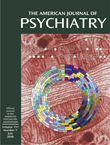Psychiatrists’ Attitudes Toward Dissociative Disorders Diagnoses
In our opinion, the article by Harrison G. Pope, Jr., M.D., et al. (1) failed to comport with the level of scholarship usually required for publication in scientific journals. The authors failed to mention two methodologically sound studies (2, 3) showing that favorable attitudes toward dissociative identity disorder are positively correlated with knowledge about the disorder (from reading texts, attending conferences about dissociative identity disorder, etc.). Furthermore, that they did not assess attitudes toward other DSM-IV disorders may have itself introduced bias. This omission also failed to provide a baseline of skepticism from which attitudes toward all disorders might be assessed.
In addition, the authors’ methodological and statistical procedures were flawed. Random sampling cannot be achieved by a “prescribed formula.” The variables assessed did not appear driven by theory. Thus, while their logistic regression appeared sophisticated, the variables it analyzed were not. The most striking problem concerned their interpretation of the data. They reported that “[the disorders] should be included [in DSM-IV] only with reservations” as the modal response. Nevertheless, a sign test shows no significant differences between this group and the group that opted for inclusion without reservations. Thus, the more reasonable interpretation is that the overwhelming majority of responders indicated acceptance—with or without reservations.
One critically important issue concerns the legal implications of the study for psychiatrists who offer expert testimony in court. In one case, the prosecution convinced a judge to bar the testimony of a psychiatric expert in dissociative disorders from a trial of a criminal defendant said to have a dissociative identity disorder by arguing that the disorder failed to meet the “general acceptance” criterion. Although this decision was reversed by a better-informed appellate court (4), the possibility that the “study” by Dr. Pope et al. could be used to deprive an individual of his or her rights in a court of law is frightening. In this regard, we note that, as of the date of our letter to you, the senior author of this Brief Report is listed as a member of the Scientific and Professional Advisory Board of the False Memory Syndrome Foundation (5).
1. Pope HG Jr, Oliva PS, Hudson JI, Bodkin JA, Gruber AJ: Attitudes toward DSM-IV dissociative disorders diagnoses among board-certified American psychiatrists. Am J Psychiatry 1999; 156:321–323Abstract, Google Scholar
2. Hayes J, Mitchell JC: Mental health professionals’ skepticism about multiple personality disorder. Professional Psychol 1994; 25:410–415Crossref, Google Scholar
3. Cormier JF, Thelen MH: Professional skepticism of multiple personality disorder. Professional Psychol 1998; 29:163–167Crossref, Google Scholar
4. State v Greene, 1998, Wash App Ct, Lexis 1223Google Scholar
5. False Memory Syndrome Foundation: The FMSF Scientific and Professional Advisory Board—Profiles. http://www.fmsfonline.org/advboard.htmlGoogle Scholar



